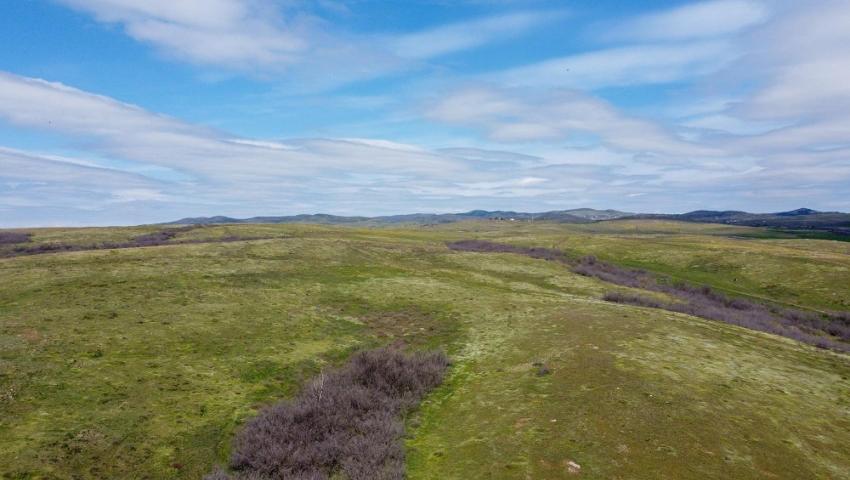A precedent - the threat of building a huge photovoltaic park in Natura 2000
Aytos Mountain Protected Area is under threat of destruction, Coalition "For Nature to Remain in Bulgaria" warned

Source: Coalition "For Nature to Remain in Bulgaria"
Raya Lecheva
If an investment proposal for the construction of a photovoltaic park in the protected area "Aytoska Mountain" is approved, a precedent may occur in Bulgaria and for the first time to build a photovoltaic park in Natura 2000. Therefore warned Spas Uzunov from the Bulgarian Biodiversity Foundation. This will be a bad signal for a conflict between RES and nature. We support the development of photovoltaic energy, but this does not mean that projects should take place at the expense of nature, he said.
The priority Pseudo-steppes with cereals and annuals and Eastern sub-Mediterranean dry grasses will be affected. According to the directive, activities can be carried out in them only if it is a question of national security, overriding interest and activities related to their protection, the expert commented. Habitats of the great nightingale, the European snipe, the variegated dragon, the little bald eagle, the imperial eagle and a total of 14 other species will also be affected. The decision of the Regional Inspectorate for Environmental Protection and Water (RIEW) in Burgas contradicts the activities planned in the declaration of the zone, says the specialist.
Photovoltaic park as many as 200 football fields
The coalition of non-governmental organizations "For Nature to Remain in Bulgaria" only a few days ago also called for the destruction of the protected area "Aytos Mountain" not to be allowed.
The investment proposal of two companies - LUCK GAME AD and SUSTAINABLE ENERGY EAD envisages the construction of a photovoltaic park on an area of 140 hectares (as many as 200 football fields) in the protected area "Aytoska Mountain".
The construction of photovoltaic parks in Natura 2000 areas declared under the Habitats Directive is explicitly prohibited by the decisions on the environmental assessment of the National Action Plan for Energy from Renewable Energy Sources. However, the national plan has expired. There is no working energy strategy, which creates an opportunity for such precedents.
And while the new plan is adopted, the investment proposal of LUCK GAME AD and SUSTAINABLE ENERGY EAD has appeared. Bulgarian Biodiversity Foundation is fighting a long battle against the construction of a solar park in the protected area "Aytoska Mountain", but the new director of RIEW Burgas again allowed to consider the project documentation, environmentalists recall.
The deadline for submitting opinions and objections to the project expires on February 6
The procedure has become extremely fast in a timeless situation, because the National Action Plan for Energy from Renewable Energy Sources expired in December 2020.
Former Minister of Environment and Water Asen Lichev and Water returned the RIEW's decision for reconsideration, and before that Emil Dimitrov sent a message to all RIEWs to be careful and wait with the processing of investment intentions in protected areas of the Natura 2000 eco-network. The investor filed a lawsuit against the return of the investment proposal and won the case and therefore the compatibility assessment procedure and the environmental assessment report. Now everything is in the hands of ROSV-Burgas, commented Spas Uzunov.
The next step, if RIEW-Burgas approves the report, is to appeal the procedure, he added.
Environmentalists support the construction of photovoltaic plants, but not at the expense of nature
The coalition of non-governmental organizations and civic groups "For Nature to Remain in Bulgaria" and the Bulgarian Biodiversity Foundation supports the construction of photovoltaic plants, but outside protected natural habitats.
Photovoltaic (solar) installations are an alternative source of energy production, which in recent years has become increasingly accessible and preferred by investors.
The technology is considered environmentally friendly and is one of the approved methods to combat climate change. Only panels, infrastructure for storage and transmission of electricity, sun and space are needed for the construction of photovoltaic installations. Lots of space! This means that in order for these installations to be profitable, they need to cover large areas. That is why they are built mainly in desolate and unusable agricultural lands.
However, when they are built in areas valuable for biodiversity, there is a conflict between business and conservation, environmentalists say.
Photovoltaics can destroy large areas of valuable natural areas. How does this happen? The panels cast a shadow that is insurmountable for plant species. In addition, they violate the water regime - the rains do not fall on the soil, but on the panels. The water is then concentrated in certain areas, which contributes to soil erosion. Animals also avoid photovoltaic parks and thus lose valuable breeding grounds, search for food and rest during migration and wintering.
We believe that it is imperative that our society rather switch to using mainly energy from renewable sources. This transition also depends on the active participation of citizens as producers of energy for their own needs. The energy system of the future will be decentralized and will include many small solar power plants that use the roof space of private homes, municipal buildings and industrial enterprises. The energy produced by them will be able to be used on site, and the surplus will be stored or sold on the grid. This transition will be accelerated after the implementation of the Directive on the Promotion of the Use of Renewable Energy in the forthcoming Bulgarian legislation.
